
In our first article on” Getting it Right for Your Child”, we discussed several key points:
- Reading fluency and reading comprehension gaps are often significant — especially for the right brain, kinesthetic or neurodivergent learner, who learns best when they see and experience information. Note, understanding math and anxiety are often issues for these students, too.
- These gaps often widen over time. A student who is 2 years below grade level in reading comprehension in 4th grade may be 3 or 4 years below grade level by the time they enter high school.
- The upside potential is often far greater than parents realize. We have seen students we help improve their reading fluency dramatically and improve their reading comprehension by 2, 3 or even 4 grade levels within months.
- Anxiety and frustration are bigger problems than at any point. In this post pandemic period, more kids are anxious and frustrated, as they missed the foundation skills needed for success. When a child is anxious, they cannot learn; they are constantly doubting what they can do.
In recent discussions with teachers and other professionals and based on our own experience, 4th and 5th graders are especially at great risk, because they missed the key foundational skills needed for success due to school disruptions during COVID, during these critical early years of schooling.
- Parents play a vital role in this equation. The right brain, kinesthetic or neurodivergent learner often has a unique set of strengths and challenges that will require a tailored approach for the child to reach his or her full potential.
In this blog post, we will discuss the benefits of both assessing for a disability and assessing for success. Many parents call us after they have had a psychoeducational assessment done by an outside professional. This is an excellent time to leverage your investment by finding the right intervention to help your child succeed.
We offer a no cost consult you can access by calling us at 561-361-7495
Parents Play a Critical Role in Getting the Right Assessments and Interventions, Especially for the Right Brain, Kinesthetic or Neurodivergent Child
Getting a diagnosis for a “disability” is often critical for several reasons:
- Public and charter schools require a student to have an identified disability before a student can qualify for special education services. This is sometimes hard for parents to hear. They fear their child will be labeled- when in reality, they learn differently- are smart- but the system is not set up to help kids like this, especially when there is often more than one issue that needs to be addressed.
- As a Mom and an Educator, the emotional turmoil my kids experienced was the deciding factor that WE, AS PARENTS, needed to do something different! We needed to take the lead in finding what our kids were good at as well as find the professionals that understood and connected with them. Just getting a person that had specific training in a specific kind of program did not work. WE HEAR THIS ALL THE TIME FROM PARENTS. It is vital to understand the whole child and work together as a team.
- Voucher programs, like the Florida Empowerment Scholarship for Unique Abilities, require a student to have a specific qualifying disability before a private or homeschool child can qualify for this program that can be worth $10000 or more for a student per year.
- All schools require a qualifying disability to get accommodations. We can help you understand the process and how to best maneuver through it to get the help your child needs. It is important to remember that schools cannot always handle multiple issues: especially processing issues.
Too often schools delay the evaluation process. They frequently say they must complete the Response to Intervention (RTI) or Multi-Tiered System of Supports (MTSS) process before they will evaluate a child. Here is a link to a blog post that discusses how RTI cannot be used to delay or deny an evaluation and a sample letter to expedite the process.
Our single biggest mistake with our own kids was not recognizing that they were both right brain, kinesthetic and neurodivergent learners who learned best when they saw and experienced information. Too often assessments do not recognize these strengths. The good news is that more and more private psychoeducational evaluations are identifying these strengths.
The three reasons it is important to identify if your child is a right brain, kinesthetic or neurodivergent learner are that these students::
- Often struggle for years, because their strengths are not leveraged
- Can often make far greater gains, when their strengths are leveraged
- It may make you a far more effective coach and advocate for your child
To help you understand if your child is a right brain, kinesthetic or neurodivergent learner, download our screening tool. We recommend you complete this with your child — some of their answers may surprise you.
Discovering your child is a right brain, kinesthetic or neurodivergent learner is often the critical first step to unlock your child’s potential. If you find your child is a right brain, kinesthetic or neurodivergent child who learns differently and you want to discuss a strength-based approach to help your child succeed in months, give us a call at 561-361-7495
Common Challenges for Right Brain, Kinesthetic or Neurodivgent Learners
The neurodivergent learner often has challenges with executive function issues, dyslexia, auditory/visual processing difficulties and/or anxiety.
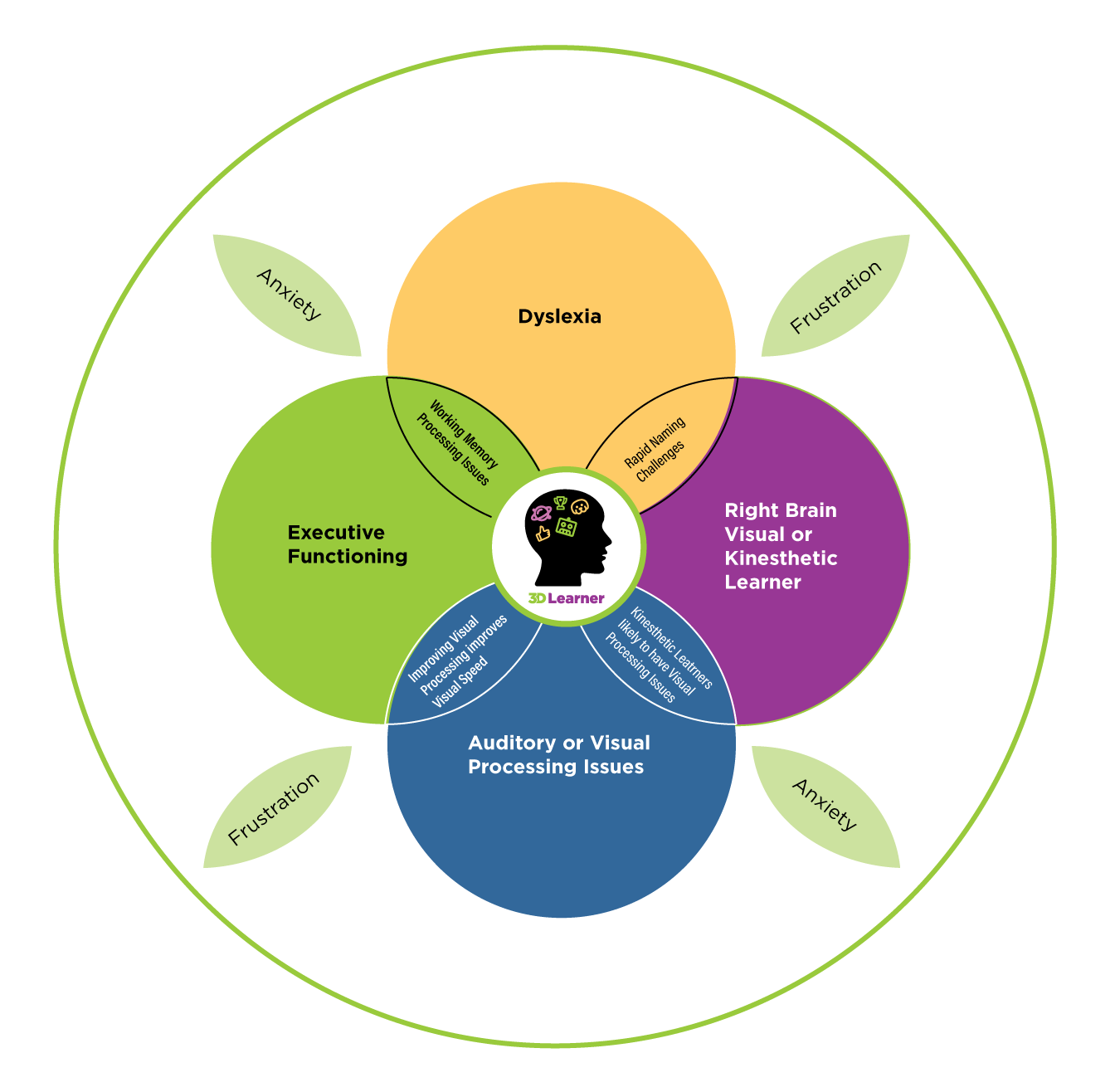 The right assessment can identify specific strengths and cognitive weaknesses
The right assessment can identify specific strengths and cognitive weaknesses
allowing for tailored interventions and support.
For individuals with executive function challenges, an assessment may include tasks that evaluate working memory, processing speed, planning and attention. This can help educators and support professionals understand the specific areas where the individual may need assistance. We use the Mindprint Assessment ® developed by the University of Pennsylvania that identifies executive function strengths and challenges.
For 25 years, we have used the Interactive Metronome ® to assess and address attention issues. This assessment often allows both parents to see the attention challenge in action. The Interactive Metronome is an excellent tool to improve attention and it also reduces impulsivity and hyperactivity and improves handwriting, sports performance and math and reading fluency.
At 3D Learner, we use the Core Assessment from the UFLI ® program to assess for dyslexia and identify specific strengths and challenges. This program was developed by the University of Florida Literacy Institute and was based on the Orton Gillingham model. This assessment allows us to tailor a treatment to the specific issues a child has.
In the case of auditory or visual processing issues, assessments may focus on tasks that assess how well an individual processes and interprets auditory or visual information. Understanding these challenges can guide the development of strategies and accommodations to support learning. We use a Visagraph ® that shows how the student’s eyes track when reading. Here is a link to a video that shows how a student’s eyes tracked before and after the intervention.
The 3D Learner Assessment Results in a Tailored Solution
At 3D Learner, our goal is to help a student to achieve significant gains in months. All the tools we use have proven to be valuable in tailoring a solution to meet a student’s needs. After we do an assessment, we then review the results and if appropriate agree on specific goals and a plan to help your child to make significant gains in months. This works
especially well for the right brain, kinesthetic or neurodivergent child who learns differently, Note, we can also tailor a program for students with executive function, attention, visual processing and/or math challenges.
We offer a no cost consult you can access by calling us at 561-361-7495
Note, the right brain, kinesthetic or neurodivergent child often has dyslexia, ADHD and other executive function challenges. What is missing is that these students often learn differently and have visual processing issues. We strongly recommend leveraging these two tools to screen to see if your child:
Again, we recommend doing these assessments with your child, as their answers may surprise you.
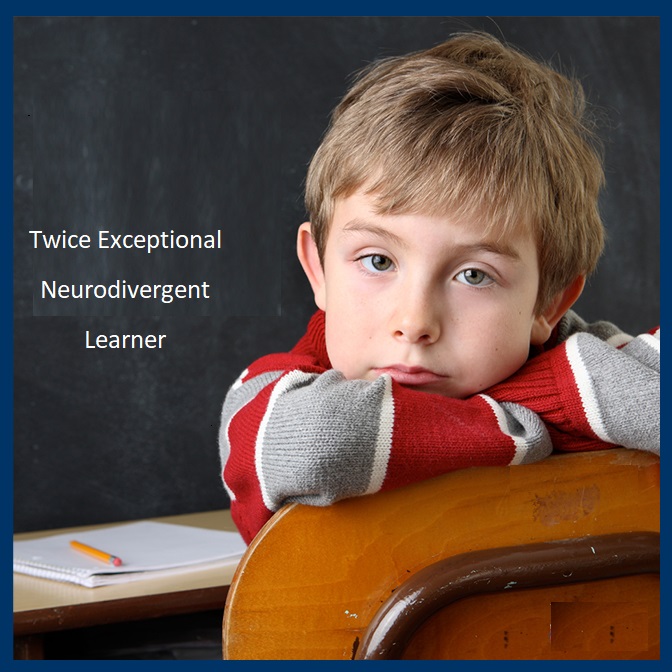
(Call 3D Learner at 561-361-7495 to put your Twice Exceptional Student on Their Pathway to Success)
“Twice exceptional” (2e) students refer to individuals who are both intellectually gifted or talented and may be neurodivergent learners with related challenges. This combination can present unique challenges and strengths in their learning experience. Twice exceptional neurodivergent learners may include those with conditions such as Executive Function issues, dyslexia, ADHD, autism spectrum disorder, or other learning disabilities.
I am Mira Halpert. I have my Master’s in Teaching the Gifted and Talented from the University of Michigan. I also have two twice exceptional children. After years of frustration with dyslexia treatments, learning centers and reading programs, I discovered both my kids were right brain kinesthetic learners. With the 3D Learner Program I developed, my daughter was able to improve her reading comprehension 4.2 grade levels in 7 months, improve her GPA from a 2.7 to a 4.4 and later earn her Master’s in Education from the University of Florida. My son improved his reading scores in elementary school, so that no more school remediation was needed, and he was able to participate in the highly gifted math program.
Over the last 26 years, 3D Learner has helped many twice exceptional students to succeed. Two examples include:
A student whose parents were told not to even apply to a rigorous college prep school, because if he got in he would not succeed. With our help, he was accepted by the school, became the valedictorian and later graduated from MIT.
While another student could solve high level math problems and was incredibly creative, he really struggled with the basics. We were able to improve his foundational skills and his confidence. He was able to succeed in school and is now thriving at the University of Chicago.
5 Things We Have Come to Learn About Twice Exceptional Neurodivergent Learners
1- Most of them are right brain kinesthetic learners, who learn best when they see and experience information
2- Many have significant executive function challenges. Some with working memory and processing speed scores that are far below what their intelligence potential is (these scores often impact their IQ score!).
3- Visual processing issues are quite common. They may have good peripheral vision, but they often skip words and lines when reading and make what appear to be “stupid” mistakes when doing math problems because their eyes do not work together.
4- Their academic performance is often far below their potential. In some cases, dyslexia, dysgraphia or other conditions may have them performing below grade level. In other cases, they may be performing at or above grade level, but they have the potential to do far better than that with the right help.
5- Schools or traditional programs often do not result in significant gains. The twice exceptional neurodivergent learner can benefit most from a program that plays to their strengths, identifies and addresses their challenges and boosts their self-esteem,
As the mom of the student who went to MIT said, “You changed his attitude and that was 90 percent of the battle”.
How 3D Learner Can Help Put Your Twice Exceptional Child on Their Pathway to Success
As parents, we wish we had access to both the right assessment and help for our daughter earlier in her life. To help parents, we are offering three ways to learn more:
1- Sign up for our Parents, Put Your Twice Exceptional Child on Their Pathway from Stress to Outrageous Success Webinar this Thursday evening January 11th at 9 pm.
Sign up and if you cannot make it, we will send you a replay.
2- Download our strengths and challenges infographic and get our series of posts on Getting It Right for Your Twice Exceptional Child.
3- Call us at 561-361-7495 and we can discuss how you can make the difference. If you want, we can also share how we Assess The Twice Exceptional Neurodivergent Child and how we help the Twice Exceptional Neurodivergent Child to Succeed with our 3D Learner Program ®.
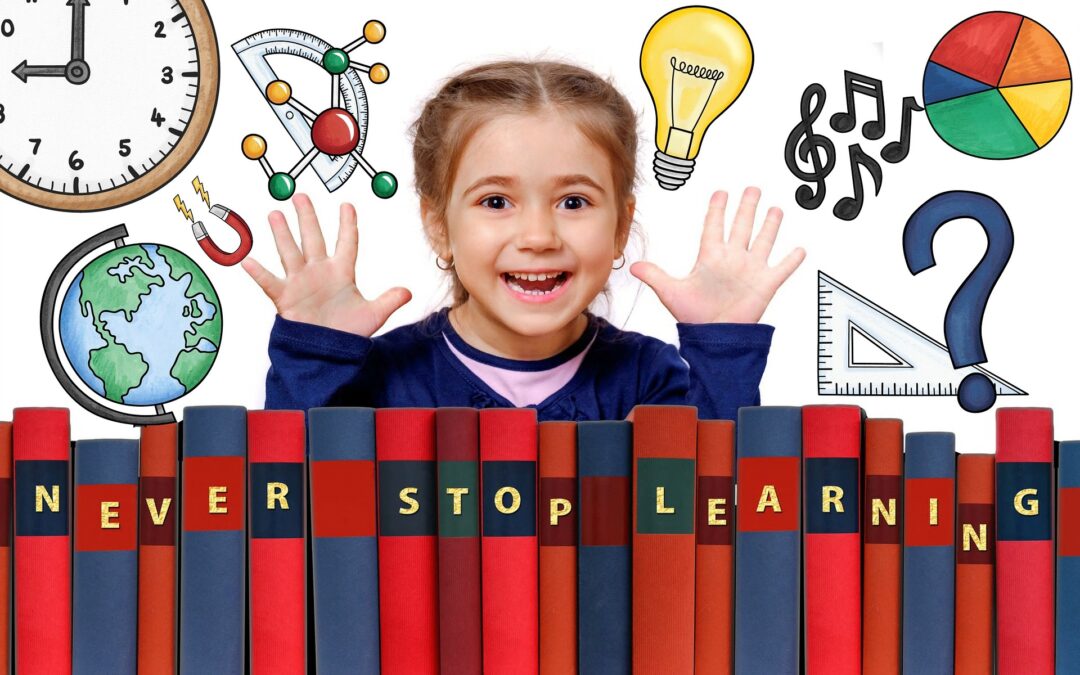
At 3D Learner, we focus on Getting It Right for students who are right brain, kinesthetic or neurodivergent learners, who often struggle with reading fluency and reading comprehension. Note, math and anxiety are often challenges, too.
In this post pandemic period, reading fluency and reading comprehension are major issues for many students. Math has become an even bigger problem, as reading comprehension issues are compounded by their lack of foundational skills.
As one parent commented, “The best time to intervene was a couple of years ago, the second best time is today”.
While the risks and opportunities are greater than ever, the key point is that it is
Up to Parents to Make The Difference
Is your child a bright right brain, kinesthetic or neurodivergent learner? Does this describe your child:
- Does your child remember places visited, even from years ago?
- Does your child learn best when he or she sees and experiences information?
- Is your child a lot smarter than present results would indicate?
- Does your child struggling with reading fluency, reading comprehension, math and/or anxiety
- Would you like to know how you can help your child to be far more successful, within months
This is the first in a 5-part series to Get It Right For Your Right Brain, Kinesthetic or Neurodivergent Learner.
This blog post will focus on the risks and opportunities facing parents and kids, and the unique role parents play in making the difference.
For the right brain, kinesthetic or neurodivergent learner,
it is up to the parents to make the difference
The second blog post will focus on the key Insights about these kids. Their unique strengths, challenges and their present level of performance — with a focus on both reading fluency and reading comprehension.
The third blog post will focus on Setting BOLD Goals for your bright right brain, kinesthetic or neurodivergent learner.
The fourth blog post will focus on Getting the Right Help to Get It Right for your bright right brain, kinesthetic or neurodivergent learner.
The last blog post will focus on the benefits of Taking Massive Action to Get It Right for your bright right brain, kinesthetic or neurodivergent learner.
The 7 biggest risks the right brain, kinesthetic and neurodivergent learners face are:
- They avoid silent reading and their reading fluency and reading comprehension gaps widen.
- Parents invest in a dyslexia treatment, which may be needed, but they do not realize these programs often do not address reading comprehension, visual processing and related skills.
- The right brain, kinesthetic and neurodivergent learners learn best when they see and experience information. These students often do not make the desired progress with traditional tutoring and other interventions that do not leverage their skills.
- These students often have visual processing, auditory processing and/or executive function issues (e.g. attention, working memory and processing speed) that are often not identified or addressed.
- Anxiety and frustration increase each year and their self-esteem and confidence declines.
- Reading fluency and reading comprehension issues start to impact a student’s performance in all other subjects.
- Parents change schools – often moving their child to a charter or private school. While these settings may help, they rarely address the reading fluency and reading comprehension issues.
3D Learner has been helping students to improve their reading fluency and reading comprehension for 28 years. We have also been working with prior voucher programs for close to 10 years.
Opportunities for Right brain, Kinesthetic or Neurodivergent Learners with Reading Fluency and Reading Comprehension Issues
- The right brain, kinesthetic or neurodivergent learner can often increase their reading comprehension by 2 or 3 grade levels within months
- Reading fluency gains can be significant
- Improvements in attention, visual processing and working memory can improve academic, athletic and related skills
- Anxiety and frustration can often be reduced, and the students can become far more confident and resilient
An Example Where a Student Needed far More Than a Dyslexia Treatment
Maria had been through two years of dyslexia treatments but was still struggling with reading fluency; her reading comprehension was two years below grade level, and she avoided reading.
Mom called us and in the first few minutes, we realized her daughter was a right brain learner, who learned best when she saw and experienced information and that she appeared to have a visual processing issue.
Further testing confirmed the learning difference and visual processing issue and revealed this second grade had some reading fluency issues and her reading comprehension was at the kindergartener level.
With our help, her reading fluency improved, her reading comprehension improved 2 grade levels in 4 months and 3 grade levels in 7 months, and she read 23-chapter books over this period.
Reading Fluency and Reading Comprehension Gaps Can Be Larger for Older Student
Gina had a significant reading fluency and reading comprehension issue. It turned out her reading comprehension was 5 years below grade level, and she was struggling with her homeschool curriculum.
With our help, her reading fluency improved, her reading speed doubled, she improved her reading comprehension 4 grade levels in 6 months, and she was able to do all her schoolwork.
The Path to Improving Reading Fluency and Reading Comprehension Starts with Asking the Right Questions
We often start with 5 key questions:
- Is reading fluency an issue for your child?
- What is your child’s present level of reading comprehension?
- Is your child a right brain, kinesthetic or neurodivergent learner? Note, many students who struggle with reading fluency and reading comprehension are a right brain, kinesthetic or neurodivergent learner, who learn best when they see and experience information.
- Does your child have a visual processing issue? 74 percent of our students skip words and lines when reading. People will argue that visual processing does not cause dyslexia — that is true. However, a visual processing issue makes reading very difficult and often leads to students avoiding silent reading.
-
Did you realize that you can leverage the Florida Empowerment Scholarship for Unique Abilities to help your child to significantly improve his or her reading fluency and reading comprehension in months?
We are offering a focused assessment that addresses the following.
-
Your child’s reading fluency strengths and challenges, using the UFLI Core Assessment ®- the University of Florida’s Literacy Institute’s Assessment
-
Your child’s present level of reading comprehension
-
Whether your child appears to be a right brain, kinesthetic or neurodivergent learner
-
Whether your child appears to have a visual processing issue
-
How you might can capitalize on your child’s strengths and address their challenges to significantly improve your child’s reading fluency and reading comprehension issues in months
To take advantage of this offer,
call us at 561-361-7495 to discuss your situation
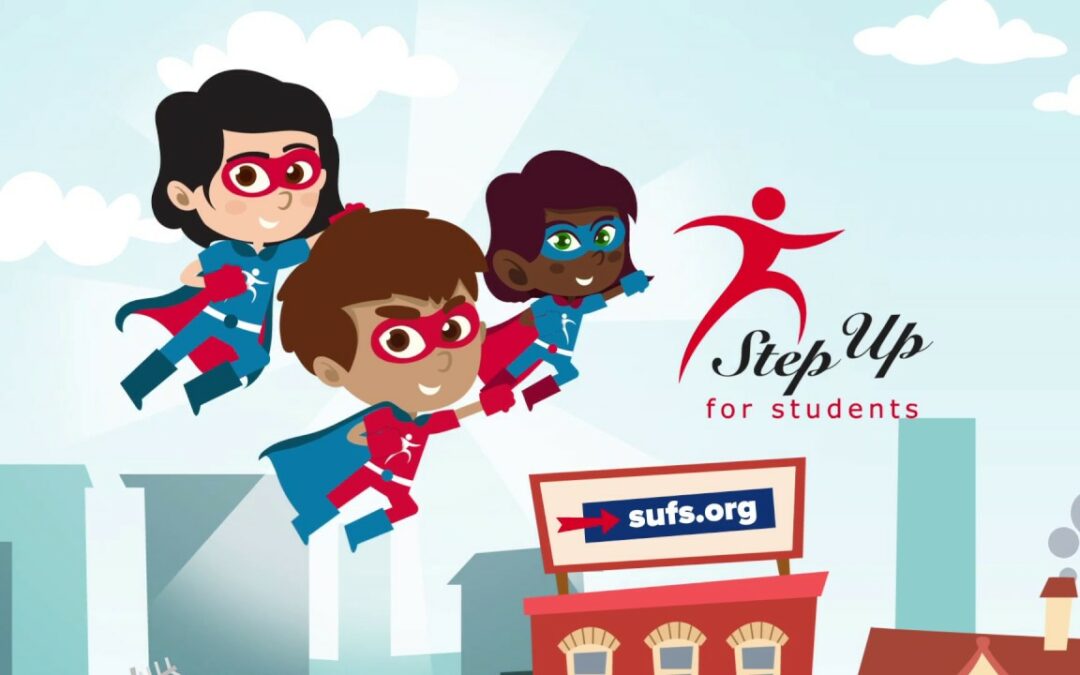
Sign up for one hour of training and we will provide valuable insights on whether your child has dyslexia, their present reading comprehension level and more.
Our focus is on the visual learner, kinesthetic learner or neurodivergent learner, who learns best when he or she sees and experiences information. We also identify and address dyslexia, ADHD, visual processing issues and executive function challenges.
We are Dyslexia certified trained for the UFLI ® Program — the University of Florida’s Reading Intervention that incorporates a Core Assessment, and an engaging and effective dyslexia treatment. This is an Orton-Gillingham based program.
Call us at 561-361-7495 to discuss your situation or to schedule a time to
Discuss How Your Child Can Make Significant Gains in months

The Florida Empowerment Scholarship for Unique Abilities (FES – UA) has been changed. They are now accepting new students through December 15th, 2023. This is for homeschool and private school students with a qualifying disability. Here is a list of qualifying disabilities. Parents can register at https://www.stepupforstudents.org/scholarships/unique-abilities/ (FES UA).
According to our sources, those granted the FES – UA scholarship now will be given the full scholarship amount for the year. This will allow for an intensive and game changing effort.
We provide integrated, engaging and effective training – both live in Coral Springs and Boca Raton and via zoom.

If you have any questions or would like to discuss how we can help your child and you, call 3D Learner at 561-361-7395 or click here to schedule a Conversation on How The Florida Empowerment Scholarship for Unique Abilities can help your child
3D Learner is a provider for this program
Homeschool successes with 3D Learner. We have helped:
7 ways 3D Learner is different than any other provider:
- Our hands-on program is designed to help the right brain learner, kinesthetic learner or neurodivergent learner who learns best when he or she sees and experiences information,
- We address both reading fluency and reading comprehension. We have had students make 2, 3 and even 4-year gains in their reading comprehension in 4 to 6 months. While we are a hands-on program, we also address phonemic awareness and reading fluency with the University of Florida’s UFLI Program ®.
- We identify and address executive function, visual processing and related issues,
- We strive to ignite a love for learning, while boosting self-esteem
- We help parents to be even more effective coaches for their child,
- We tailor our program to meet the individual child’s needs. We can also address math and writing issues.
- Our assessment, that can be done live or online, will show a parent:
- How your child learns best
- Their learning strengths and challenges
- Whether there is an executive function or visual processing issue
- The child’s present level of performance for both reading fluency and reading comprehension
Note, we do provide our services in Boca Raton and Coral Springs, FL and via zoom.
If you have any questions or would like to discuss how we can help your child and you, call 3D Learner at 561-361-7395 or click here to schedule a Conversation on How The Florida Empowerment Scholarship for Unique Abilities can help your child.
3D Learner is best known for helping bright right brain kinesthetic learners succeed. These are the students who learn best when they see and experience information and who are often a lot smarter than present results would indicate.
3D Learner has helped many homeschool and private school students improve their:
- Reading fluency
- Reading comprehension — often, but two, three or even four grade levels in months
- Self-confidence and so much more (e.g. attention, executive function skills, math etc.)
Our first goal is to help parents with a child who learns differently to realize their child can do far better with strength-based training. We often start with a no cost Stress to Success Conversation parents can have by either calling us at 561-361-7495 or clicking on Stress to Success Conversation and finding a mutually agreeable time to talk.
Our second goal is to help you as a parent to understand your child’s reading fluency and reading comprehension levels and to determine where your child is at, what help they need, and to tailor a solution to help your child to be all he or she can be.
If you have any questions or would like to discuss how we can help your child and you, call 3D Learner at 561-361-7395 or click here to schedule a Conversation on How The Florida Empowerment Scholarship for Unique Abilities can help your child

In this post pandemic era, more students are further behind in reading comprehension than one would normally suspect. Over the last few weeks, we have gotten calls from parents in grades 1 to 9, where the parents are quite concerned. Their child is struggling in reading and often with anxiety. The parents have often have previously tried other interventions to improve reading comprehension and reading fluency including:
- Traditional tutoring
- Learning centers
- Dyslexia treatments
- School based interventions
Parents are being told:
- Grade retention is a possibility in the earlier grades
- The private school their child is at may not be right for their child or in several cases
- The parents are not being told anything, but their child is struggling more this year and they know the problem is likely to get worse
- By a psychologist that their child has dyslexia, learns differently and has working memory issues and needs a program that addresses the whole child
What research has told us is that:
- Almost 90 percent of the 1st graders will be poor readers in 4th grade
- 74 percent of the students with a reading disability (dyslexia) in 3rd grade will still have a reading disability (dyslexia) in 12th grade
- 45 percent of the students with a learning disability in middle and high school are 3 to 4.9 years below grade level in reading comprehension and 21% are more than 5 years below grade level in reading comprehension.
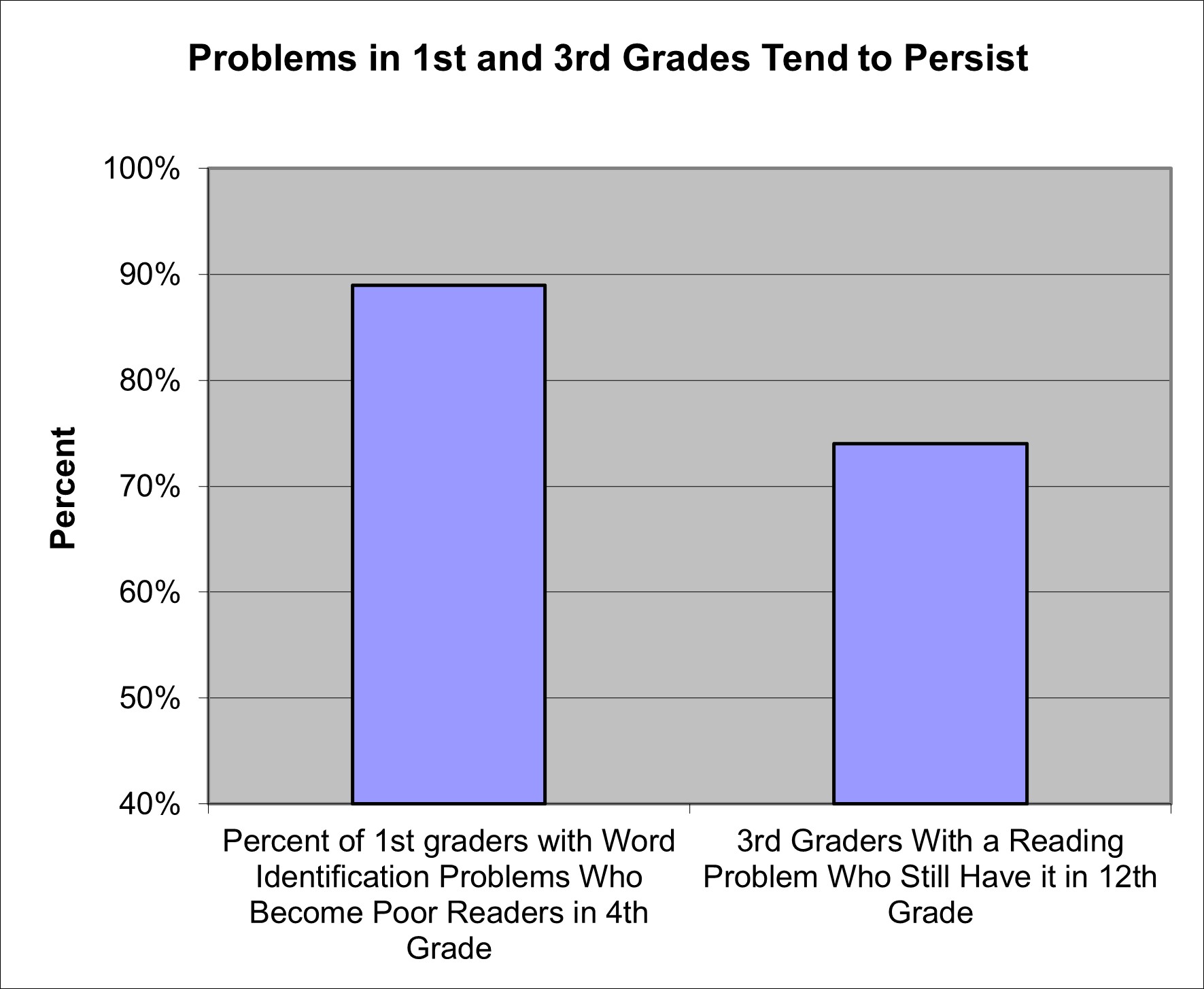
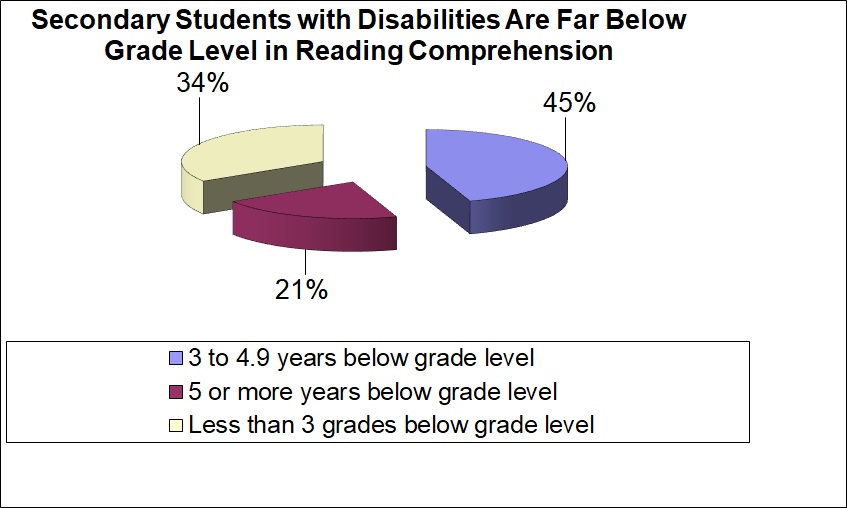
If your child is struggling with reading fluency and/or reading comprehension, there is a significant chance the problems will persist and worsen. Our goal is to help you to get to the root causes of your child’s challenges and to help you lay out a Pathway to Success for your child.
In the press and online, there is a great deal of focus on dyslexia. Dyslexia is when a student has trouble with reading fluency — that is they do not read efficiently or effectively. Having two kids with dyslexia and helped hundreds of students with dyslexia, we know the problem is real, but we also know that:
- While a dyslexia diagnosis and dyslexia treatment are helpful, it often does not translate directly into better reading comprehension
- Most students with dyslexia:
- Have difficulty with rapidly naming letters and words
- Learn differently — they often learn best when they see and experience information and are what we call a right brain learner
- Have a visual processing issue
- Have executive function issues (e.g. attention, working memory and processing speed)
- Struggling with anxiety and/or frustration
- Have a significant problem with reading comprehension, that is often not addressed with a dyslexia program
- Informed, empowered and proactive parents can make the difference
Before embarking on a significant effort, we recommend considering the following ten questions:
- What is your child’s present level of reading fluency and does your child have dyslexia
- What is your child’s present level of reading comprehension
- What is your child’s present level of anxiety/frustration
- If your child was going to be very successful over the next 6 months — what 3 to 5 goals would you set? Be sure to include a personal goal for something they love to do – -baseball, dance, horseback riding etc.
- Is your child a bright right brain kinesthetic learner, who learns best when he or she sees and experiences information
- Does your child have a visual processing issue
- Does your have executive function problems
- Is anxiety or frustration a major issue for your child
- What can your child’s school do to help
- What can you do to help your child to be all he or she can be in the next 6 months
On Monday evening November 6th at 9 pm,
we will be discussing these questions,
with a focus on how to improve reading comprehension and reading fluency, while reducing anxiety for your child
Before watching this webinar, we recommend you download the two screening tools below, and answer the questions. This are designed to answer the questions.
The answers to these two questions are really helpful in your understanding your child, your explaining to their teachers who your child is and in finding the right solution to help your child succeed.

 The right assessment can identify specific strengths and cognitive weaknesses
The right assessment can identify specific strengths and cognitive weaknesses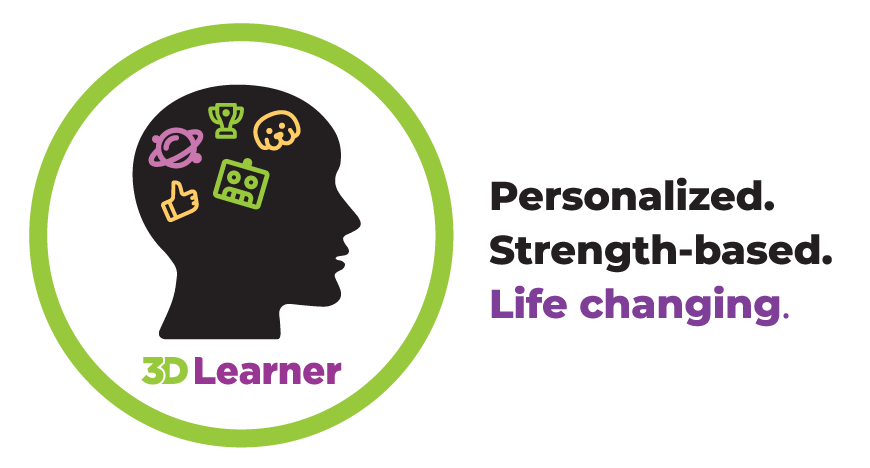
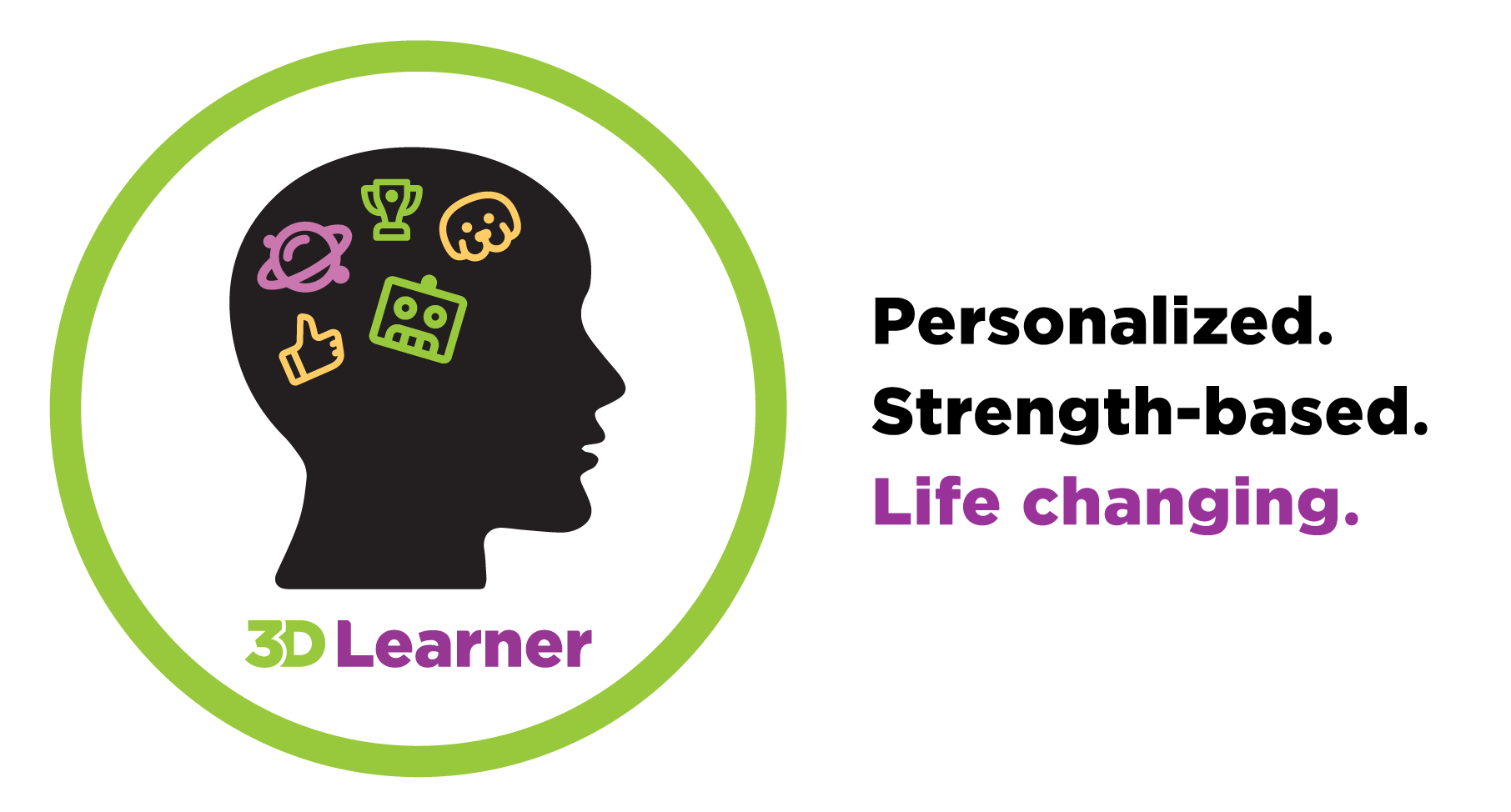








Recent Comments